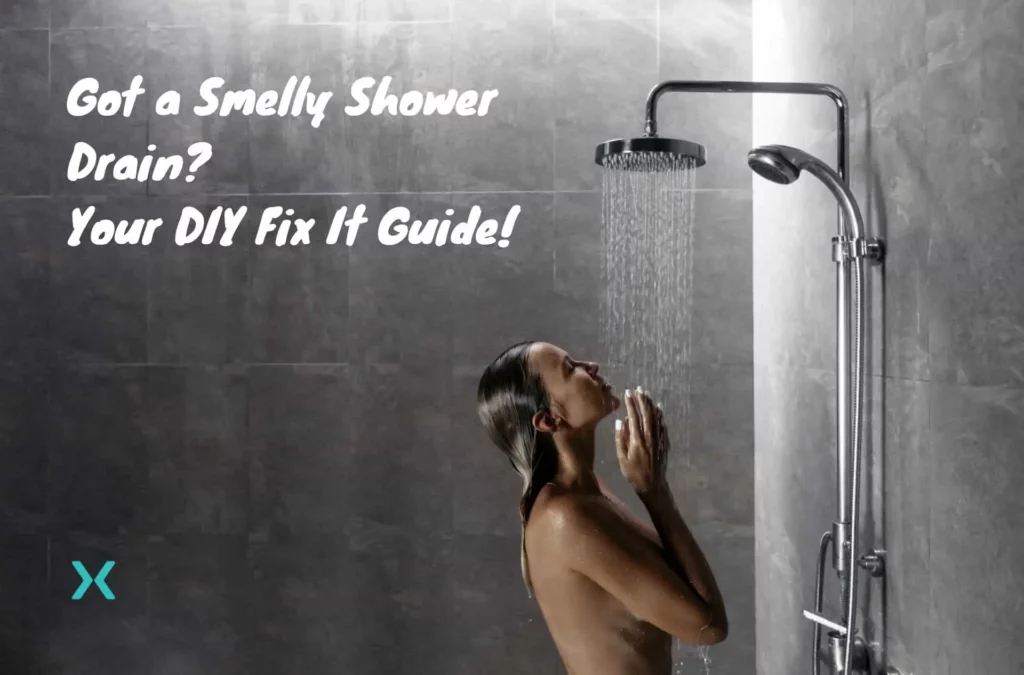⭐ Why Does My Shower Drain Smell Like a Sewer?
Nothing worse than getting up in the morning and looking forward to a nice hot shower only to be hit with a horrible smell emanating from your shower drain. But what is? What is causing my shower to smell like a sewer?
It’s tough to feel clean after a shower or bath only to have your bathroom smell like a garbage dump. If your shower is giving off these odors, it’s time to investigate.
The good news for you is that it’s a pretty easy problem to solve once it has been identified. So put on your DIY home improvement hat, and let’s fix that smelly shower drain.
Table of Contents
⭐ What Causes a Shower Drain to Stink?
Many common sources for that sewage or rotten egg smell come from your shower drain.
A stinky shower can be caused by the following:
- A clogged drain
- a dry or dirty p trap
- Biofilm or mold buildup
- or leaky pipes somewhere in or near your bathroom.
📗 Related Reading: What Does Sulfur Smell Like? A Homeowners Plumbing Guide
⭐ Clogged Drain
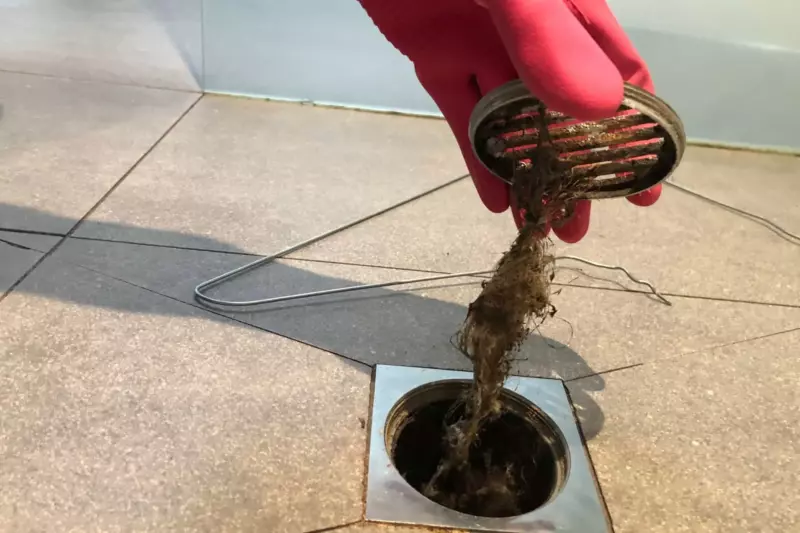
A clogged drain is the number one reason for a smelly shower drain.
Everything that washes off your body ends up down that shower drain.
Dirt, soap scum, oils, hair, mineral deposits and other debris can make their way down the drain and clog it over time.
Once this mess starts to build up, it accumulates over time with more of the above as its acts like a barrier to good drainage.
As the clog builds up over time, it attracts much of the same, and at some point in the future, the clog becomes large enough to stop the water flow, and you get water backed up into your shower.
As this clog starts to age and rot, this is when you will notice these offensive odors.
🛑 SAFETY NOTE: Do not mix cleaning products. Even something as innocuous as mixing vinegar with chlorine-based bleach can produce toxic gas. If using chemical-based products, follow the manufacturer’s instructions carefully.
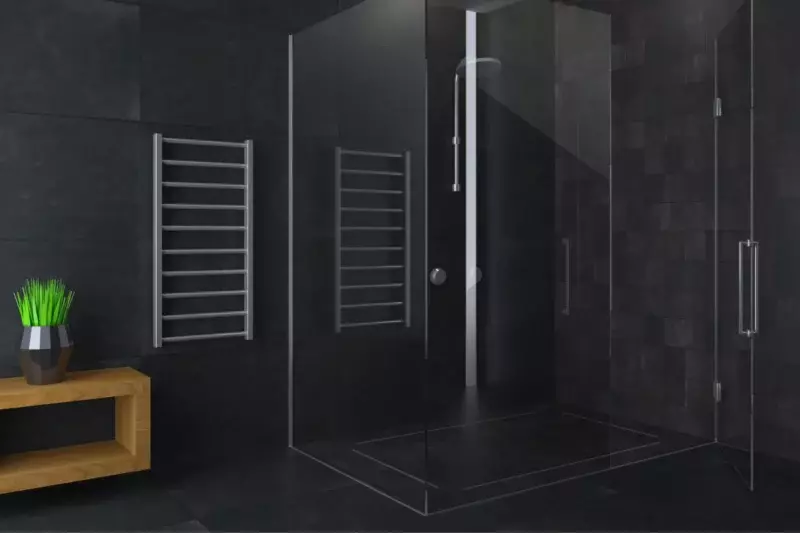
How to Clean a Smelly Shower Drain
Cleaning a Shower Drain with a Toilet Plunger
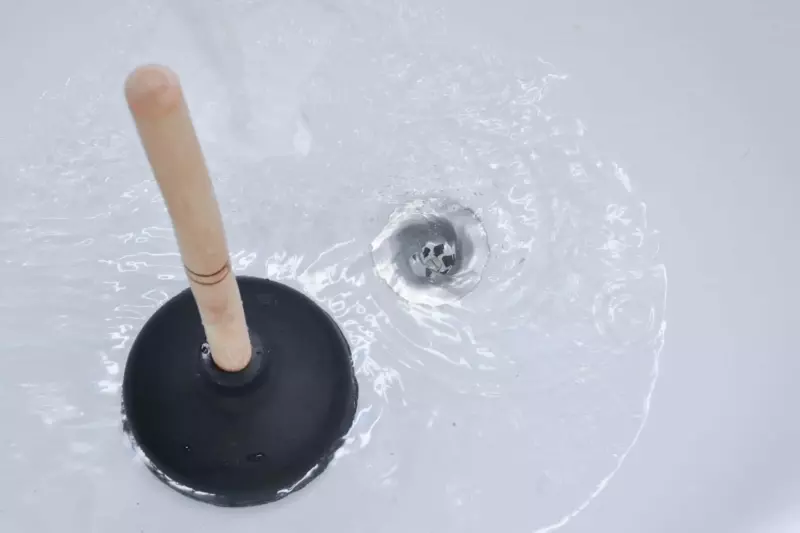
The first thing you should try is a good ole fashioned plunger.
If it’s a decent clog, fill up your tub or shower with enough water to cover the rubber bell of the toilet plunger.
Place the plunger over the shower drain and plunge away.
The force of the water should help dislodge any clogs and all and allow the water to flow down the drain.
If the drain is still blocked or draining slowly, try again.
Cleaning a Shower Drain with a Drain Snake
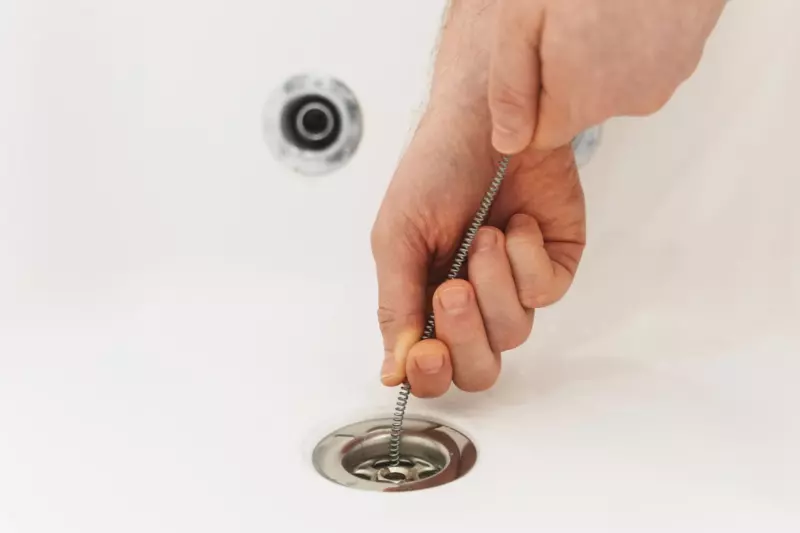
Plunging might not move if the clog is made up of a mess of trapped hair and other gunk.
Now it’s time to snake your drain and clear the blockage.
You can purchase drain snakes online or at most hardware stores.
Remove the drain cover and push the drain snake down into the drain pipe.
If you feel resistance, you have found the clog.
Rotate the drain snake to catch the clogged mess until you stop feeling resistance.
Slowly pull up the plumber’s snake and dispose of the lumpy mess.
Now that you have cleared the clog, run the shower with hot water for a few minutes to check that the clog is clear.
Clean the drain cover with a suitable cleaner and replace it.
Cleaning a Smelly Shower Drain with Baking Soda and Vinegar
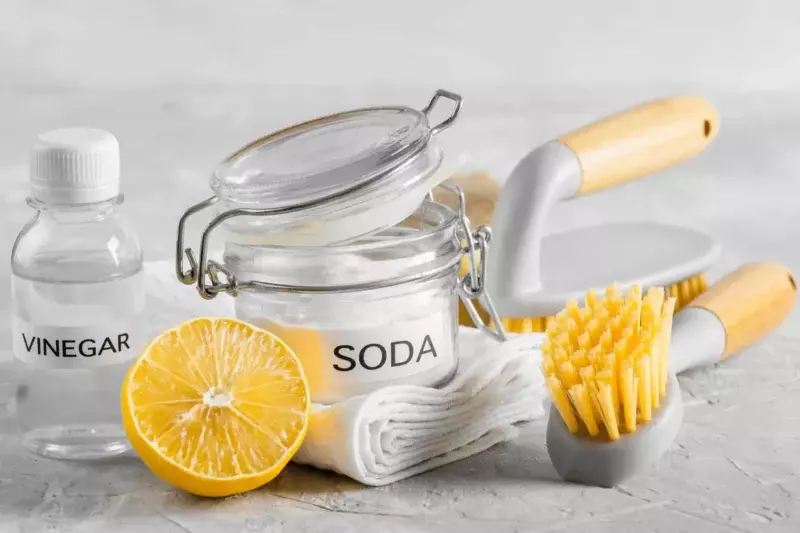
While this solution will not unclog trapped air, it’s great for cleaning out soap scum and odor-causing bacteria that can coat smelly drains.
This solution is great for flushing your shower drain line regularly.
To get rid of shower drain smells, try the following:
Remove the drain cover. Lever up the drain cover so you have full access.
Pour about 4 cups of hot water instead of boiling water down the drain. Using only hot water from the tap is preferable if you have PVC pipes.
Add Baking Soda and Vinegar. Pour 1 cup of baking soda down the drain, followed by 1 cup of white vinegar. Be prepared for a chemical reaction.
Wait! Let the solution work for about 15 minutes, then flush with more hot water. Run your shower for a minute to check that the clog is gone.
Tools:
- Toilet Plunger
- Drain Snake
Materials: Baking Soda, Distilled White Vinegar, Chlorine Bleach, and Hot Water.
⭐ Dry or Dirty P-Trap
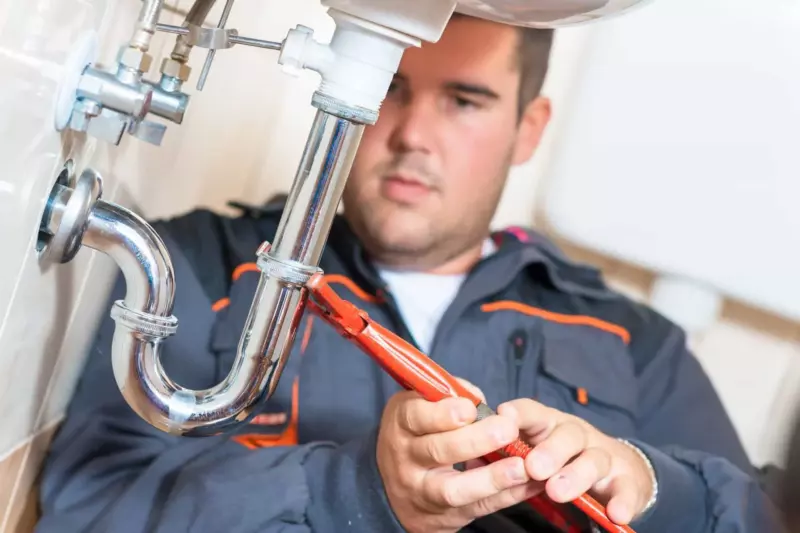
A p trap is the u shaped pipe you see under your sinks.
The p trap is curved to hold a certain amount of water.
This provides a barrier between the air in your bathroom and the sewer gases in the sewer line.
Since the p trap for your shower is under the floor, you most likely can’t see it, but it’s there.
If you have an unpleasant smell coming from your shower drain, like rotten eggs, it’s most likely a dry p trap.
If you don’t use a sink very often, the water in the p trap can evaporate.
Related Reading: What Is a P Trap and How Does It Work?
🧰 The Fix! Fill up and Check your P Trap.
To Check:
- Remove the drain cover and look into the drain with a flashlight.
- If there’s no water, pour approximately two cups down the drain.
- Wait an hour and check the shower drain for water.
If the water is gone, you have a leaking drain pipe, so it’s time to call in a plumber.
If your p trap is dirty and the cause of unpleasant odors, use the cleaning method above to ensure you have clean shower p traps in your home.
If you still have problems with your shower p-trap, call a plumber.
⭐ Biofilm Buildup
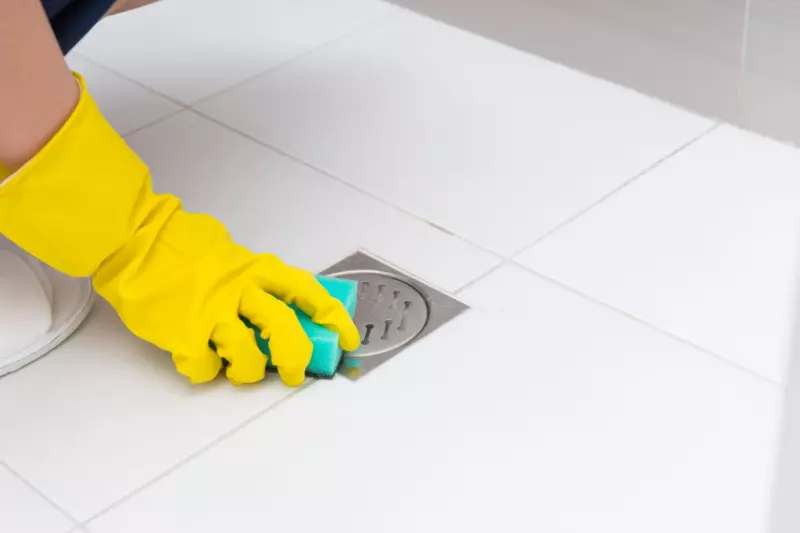
Biofilm is that slimy layer of bacterial waste that accumulates in your shower drain over time.
This results from soap, shampoo, body oils and everything else that can build up over time in your drain.
🧰 The Fix: Clean Out Your Shower Drain
Follow the same procedure above for cleaning your drain with baking soda and vinegar.
Don’t forget to wipe down the drain cover before replacing it.
⭐ Leaking Pipes
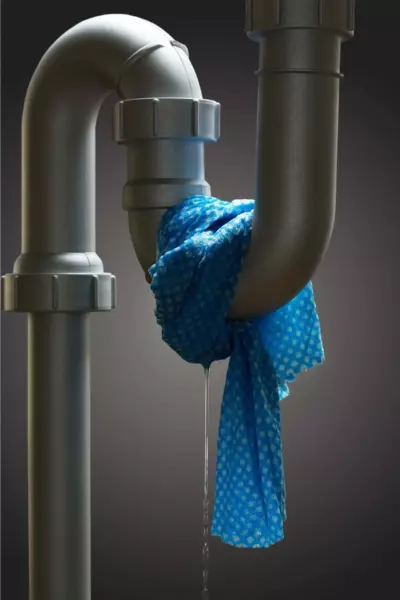
A leaking drain line can be a serious problem that causes a sewage smell to emanate from your home’s plumbing system.
If you have leaky pipes, it’s likely that wastewater from your showers can find its way into your home, saturating floors, walls and insulation.
If left for too long, not only will this cause those foul-smelling shower odors, it will cause irreparable damage to your home.
This will also cause mold growth if left long enough.
🧰 The Fix: Repair Leaking Pipes
Leaks typically occur at joints or connections.
Finding these leaks can be problematic because most of your drain lines are hidden under the floor and inside walls.
Finding and fixing these leaks requires the removal of floor tiles or drywall to gain access.
Due to the complexity of repairing leaks that you cannot find, it’s best to engage your local plumber.
They have the training and experience to locate leaks, fix the problem and restore your bathroom to its former glory.
They are also insured if they cause further problems.
If the water damage is bad enough, you may have to completely renovate your bathroom to resolve the issue.
This requires the input of an experienced plumber or water restoration expert.
⭐ Frequently Asked Questions
How Often Should I Clean My Shower Drain?
It’s a good idea to clean your shower drain on a regular basis to prevent clogs and maintain good drainage.
How often you need to clean your shower drain will depend on how frequently you use your shower, as well as any other factors that could contribute to clogs, such as the type of water you have (hard water can cause mineral buildup) and the type of shower drain you have (some drains are more prone to clogs than others).
Follow the cleaning method above and clean your drains with your preferred solution once a month.
How Do I Clean the Interior of my Shower Drain?
You can use a roller paint cover to clean the vertical surfaces of your shower drain.
Soak the paint roller cover with a suitable cleaning solution and insert it down the drain once the cover is removed.
Rinse and repeat until the biofilm is removed and you can no longer smell any foul odors.
Are My Toiletries to Blame?
It’s possible that your toiletries could be contributing to clogs in your shower drain.
Many personal care products, such as shampoo, conditioner, and soap, contain oils and other ingredients that can build up in the drain over time and cause clogs.
To help prevent this, you can try to avoid pouring large amounts of these products down the drain, and use a drain cover or hair catcher to catch any stray hair or debris before they enter the drain.
You can also consider using natural, biodegradable toiletries that are less likely to cause clogs.
Should I Use Boiling Water?
Modern homes’ plumbing systems are built with PVC pipes. If you pour boiling water down a drain, you can cause more harm than good.
Hot water from a tap combined with one of the listed cleaning techniques should prevent your bathroom from weird shower drain smells.
⭐ When to Call a Professional Plumber

If all else fails, call your local plumber!
Many of these problems listed above are easily fixed by your average homeowner with tools that are readily available in the market.
If you are dealing with water damage from a leaking pipe or have a clog that just won’t budge, it’s time to call in the professionals.
Phyxter Plumbing Services is always here to help if you need the assistance of a professional plumber.
Check out our plumbing page and see if Phyxter services your area.
Feel free to check out the other plumbing content on our site to keep your home in tip-top shape!
Related Reading: DIY Guide to 15 Common Plumbing Problems & Solutions
Related Reading: Sewer Cleanout: What it is and Why it Matters

